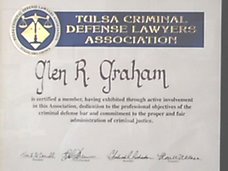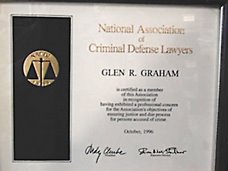A very interesting article in the National Association of Criminal Defense Lawyers magazine is the article by by attorneys Eric Sills and Peter Gerstenzang. It concludes that under the application and interpretation of current laws, that DUI offenders are interpreted as having fewer rights that other criminal offenders.
A True Double Standard: A Defense Perspective on the Inherent Unfairness in the Administration of the Impaired Driver Laws By Eric H. Sills; Peter Gerstenzang
Due to the intense pressure placed upon legislators, prosecutors and judges to wage war on impaired drivers — by interest groups such as Mothers Against Drunk Driving — it is rare that a year goes by without an increase in the penalties imposed for driving under the influence of alcohol or drugs (“DUI”). This pressure, combined with the lack of any organized lobbying on behalf of the drinking or drug-using driver, has led to a true double standard in which the criminal justice system has created two classes of criminals: (1) impaired drivers, and (2) all other criminals.
The inherent unfairness in the administration of the DUI laws pervades virtually every aspect of a DUI case, from the initial stop of the defendant’s vehicle through the administration of the chemical test. In addition, the courts routinely find that the use of so-called “civil penalties” to exact extra punishment on DUI offenders (e.g., driver’s license suspensions pending prosecution, chemical test refusal revocations, vehicle seizures or forfeitures) do not violate either the Double Jeopardy Clause or the Due Process Clause.
This article will demonstrate that the Constitution has been interpreted to provide less protection where the defendant is accused of DUI than it does where the defendant is accused of virtually any other crime, regardless of how serious or despicable.
http://www.nacdl.org/public.nsf/01c1e7698280d20385256d0b00789923/b0e7d25e09976c80852572e40065a3fb?OpenDocument
The Inherent Unfairness in DUI Laws
Subscribe to:
Post Comments (Atom)






1 comment:
In an environment where less protection is interpreted under the Constitution, then one's attention would be best spent in either:
1) before hand by avoidance/prevention or
2) after the fact, through mitigation by taking solid, clear action to assure recurrence does not happen.
The latter involves pursuing a treatment vs. penalty option with the criminal justice system it is imperative to convince the court/prosecutor of three things:
1) a sincere desire to change evidenced by actions taken vs expressed intent,
2) a solid plan of recovery utilizing best therapeutic practices, and
3) a strong accountability system to assure that you are doing what you say you are going to do and the court has agreed to.
A recovery plan incorporating these elements will be welcomed in the criminal justice system.
We offer substance abuse treatment in an outpatient setting for all adults. We accept Medicaid, assist with private insurance, and have very reasonable self-pay rates. We have flexible hours before and after work.
We specialize in opioid (painkiller) and methamphetamine addiction.
OBNDD has estimated 87,000 Oklahomans are painkiller addicts. SAMHSA announced in March that Oklahoma leads the nation in painkiller addiction. The mass of these addicts are below the threshold of our vision because they are able to manage their addiction as well as other aspects of their lives due to cheap and easy access to drugs through online pharmacies.
The criminal justice system, as well as social services, and healthcare, are about to be overwhelmed because the cheap and easy access to drugs is being shut down. These people will become sick and despearte in a hurry which catalyzes a progression of consequences. The lack of detox beds are already a bottleneck to recovery. How will we deal with this tsunami of painkiller addiction?
The SAMHSA evidence-based best practice, Medication Assisted Treatment, Treatment Improvement Protocol 43, can often transition active using painkiller addicts to MAT treatment bypassing detox. This means that the addict maintains their job, their ability to pay for legal fees, pay rent, keep their home, and keep their family intact.
The progression of consequences is halted. The addict and their family are saved grevious pain and suffering. Our already depleted resources are not further inundated and taxpayers are spared. Everyone wins.
We have three locations in Oklahoma:
Keetoowah Cherokee Treatment Services:
Tulsa - 2727 E Admiral Pl
918-835-3017
Delaware exit off I-244, north side
Quapaw Counseling Services:
Oklahoma City - 1301 SE 59th St
405-672-3033
Just west of I-35 from 59th St exit
Miami, OK - 58150 E 66th Rd
918-542-1786
Post a Comment